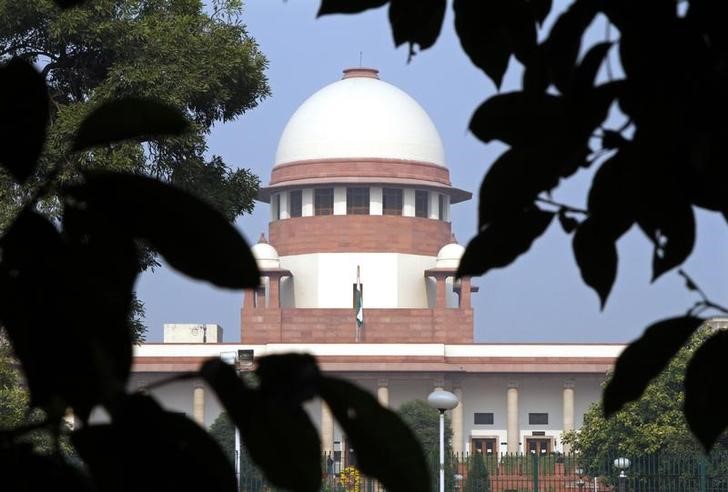Article 142 of the Constitution, which grants the Supreme Court special powers, was invoked twice by the five-judge Constitution bench while delivering the landmark verdict in the Ayodhya title suit on Saturday. The court said in view of the evidence, the disputed 2.77 acres of land was awarded for a temple, but it invoked Article 142 to grant 5 acres for a mosque as well.

A view of the Indian Supreme Court building is seen in New Delhi December 7, 2010. REUTERS/B Mathur/Files
What is Article 142?
The order was given by the five-judge bench of CJI Ranjan Gogoi and Justices S A Bobde, D Y Chandrachud, Ashok Bhushan and S A Nazeer said, “There was no abandonment of the mosque by the Muslims. This court in the exercise of its powers under Article 142 of the Constitution must ensure that a wrong committed must be remedied. Justice would not prevail if the Court were to overlook the entitlement of the Muslims who have been deprived of the structure of the mosque through means which should not have been employed in a secular nation committed to the rule of law.”
It had also invoked the Article to grant relief to Nirmohi Akhara asking it to be included in the trust to be formed by the centre under Section 6 of the Ayodhya Act to construct Temple.
Article 142 in hindi
The bench further said, “In exercise of the powers vested in this Court under Article 142 of the Constitution, we direct that in the scheme to be framed by the Central Government, appropriate representation may be given in the Trust or body, to the Nirmohi Akhara in such manner as the Central Government deems fit”.
Article 142 of the constitution enables the Supreme Court to pass any order necessarily “for doing complete justice in any cause”.
The Article says: “Enforcement of decrees and orders of Supreme Court and unless as to discovery, etc (1) The Supreme Court in the exercise of its jurisdiction may pass such decree or make such order as is necessary for doing complete justice in any cause or matter pending before it, and any decree so passed or orders so made shall be enforceable throughout the territory of India in such manner as may be prescribed by or under any law made by Parliament and, until provision in that behalf is so made, in such manner as the President may by order prescribe.”
Art 142 in hindi
So while this order is “enforceable throughout the territory of India” it cannot become a precedent.
Previously, Article 142 has been used to bring justice to various deprived sections of society or to protect the environment. It was used for the cleansing of the Taj Mahal, the marble of which was getting yellow due to sulphur fumes from surrounding industries.
In the case against persons accused in the Babri Masjid demolition case, a two-judge bench had passed an order, invoking Article 142, transferring the trial of persons from Raebareli to Lucknow. The near-complete trial at Raebareli was transferred to Lucknow in view of the pendency of the case for 25 years.
Complete justice definition
In December 2015, the top court had invoked the Article 142 to appoint Justice Virendra Singh as the Lokayukta of Uttar Pradesh, when the state had not made the appointment within the deadline citing lack of consensus. The appointment of the Lokayukta is in the government’s domain.
In October this year, the top court had invoked Article 142 to annul the marriage of a couple living apart for the past 22 years, even though the woman had not given consent for the divorce.






